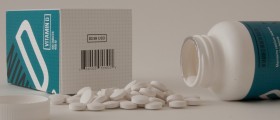Introduction
Cod liver oil is commonly used everywhere around the world because it provides numerous different types of health benefits. It is an excellent source of different types of fatty acids and vitamins. Unfortunately, it may sometimes trigger certain types of side effects.
Side Effects of Cod Liver Oil
The list of side effects triggered by the use of cod liver oil can sometimes get quite extensive. Perhaps the most common among them all are tightening sensations in the chest and the throat, and difficulties in breathing. One may also experience discoloration of urine and certain changes in eyesight or blurry vision.
Other common side effects of cod liver oil may also include drowsiness, skin rashes, tiredness, itchiness, headaches, swollen skin, jaundice-like appearance, thinning of the blood, bruises, stomach cramps, constipation, diarrhea, vomiting, nose bleeds, unpleasant aftertaste and bleeding from the gums, among others.

Some side effects may be mild, while others may be seriously severe. A person should always consult a doctor before using any cod liver oil supplements. They may interact with other types of medicaments or supplements.
Most side effects triggered by the use of cod liver oil supplements are mild, and they are usually only temporary. Some, if not all of them, usually call for immediate medical attention because they may lead to other even more serious medical conditions. One should always follow all the instructions concerning the dosage of a supplement to avoid the occurrence of the aforementioned side effects.
- Dietary supplement use among recreational athletes is common, with the intention of reducing inflammation and improving recovery. We aimed to describe the relationship between omega-3 fatty acid supplement use and inflammation induced by strenuous exercise.
- C-reactive protein (CRP) concentrations were measured in 1002 healthy recreational athletes before and 24?h after a 91-km bicycle race. The use of omega-3 fatty acid supplements was reported in 856 out of 1002 recreational athletes, and the association between supplement use and the exercise-induced CRP response was assessed.
- Two hundred seventy-four subjects reported regular use of omega-3 fatty acid supplements. One hundred seventy-three of these used cod liver oil (CLO). Regular users of omega-3 fatty acid supplements had significantly lower basal and exercise-induced CRP levels as compared to non-users (n?=?348, p?0.001).
- Compared to non-users, regular users had a 27% (95% confidence interval (CI): 14–40) reduction in Ln CRP response (unadjusted model, p?0.001) and 16% (95% CI: 5–28, p?=?0.006) reduction after adjusting for age, sex, race duration, body mass index, delta creatine kinase, MET hours per week, resting heart rate and higher education. CLO was the primary driver of this response with a 34% (95% CI: 19–49) reduction (unadjusted model, p?0.001) compared to non-users. Corresponding numbers in the adjusted model were 24% (95% CI: 11–38, p?0.001).
Another important aspect is the way a person stores the cod liver oil. If one stores it improperly it may become unusable and sometimes even dangerous. Cod liver oil needs to be stored in a dark, dry, and cool area, in a bottle or a container.
It should be kept out of reach of children at all times. If a person does not suffer from any side effects, there are numerous health benefits of cod liver oil which can be enjoyed then. Those who spend plenty of time in the sun should be very careful because if they take cod liver oil it may sometimes lead to a vitamin D overdose.
A teaspoon of cod liver oil contains 400 International Units of vitamin D. Vitamin D overdose can be recognized by certain symptoms such as constipation, vomiting, and nausea. Pregnant women should definitely avoid using cod liver oil, even in its supplemental form.
- medlineplus.gov/druginfo/natural/1040.html
- https://www.webmd.com/vitamins/ai/ingredientmono-1040/cod-liver-oil Photo courtesy of Nick Holland by Flickr: www.flickr.com/photos/27387694@N05/3788106547

















Your thoughts on this
Loading...